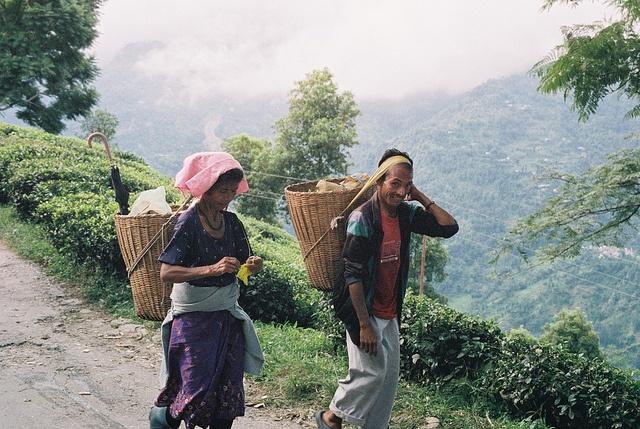
By Raminder Chowdhary
Here is something to ponder about: What is common between Greek feta cheese, Mexican tequila, Basmati rice, bourbon whiskey, Persian carpets, and Pinggu peaches?
It’s not an easy one, and I won’t keep the suspense. These are very successful products known globally for their geographical origin and for characteristics linked to that origin. The quality and reputation these products enjoy is essentially due to their place of origin. Climate, soil, local community skills, and traditional knowledge and practices all create a strong bond between such products and their geographic origins. Most often, in addition to geographic concentration of such products, the indigenous communities are the custodians of the “process” know-how.
Are you trying to think of some other products that fit this definition? Alphonso mangoes, Rocquefort cheese, Porto, Havana, Swiss watches, Feni from Goa … and the list goes on. Oh, missed one of my favorites – Darjeeling tea.
Over the past decade, tremendous attention has been given to recognition and protection of such products through the mechanism of geographical indication (GI). A geographical indication is a sign used on products that have a specific geographical origin and possess qualities or a reputation that are due to that origin. World Trade Organization members under the TRIPS Agreement have an obligation to protect GIs.
Now do you see what I am getting at? The real attraction to preserve and protect such products is commercial rather than legal. As discerning consumers across the globe ascribe certain characteristics and quality to products based on their origin, sales have sky-rocketed and multibillion-dollar markets have emerged. Sales of GI-protected products like feta and Rocquefort cheeses are nearing $8 billion; champagne $5 billion; bourbon whiskey $9 billion, etc.
Consumers are willing to pay premiums for such products. Differentiation and brand building is relatively easy, and niche markets commanding premiums emerge naturally. Multinational corporations with global manufacturing and marketing capabilities stand to benefit from this opportunity.
Let’s talk about a specific market: India had about 250 registered GIs. My guesstimate, and please don’t ask me how I arrived at this, would be that there is a potential to protect through registration over 10,000 GIs in this culturally and geographically diverse country. Many countries offer similar opportunities.
Have you put two and two together yet? Hint: Corporate social responsibility (CSR) initiatives rarely focus on cultural and heritage preservation and hence seem to be missing out. The economic and social benefits of identifying, documenting, registering, reinforcing global recognition, and developing international marketing strategies for GI-registered agricultural products, foodstuffs, wine and spirit drinks, handicrafts, and industrial products are immense. A win-win for all.
Wake up corporations, C-suite and specifically CSOs and CSR heads. And yes, for once let us not leave everything to NGOs. Here is an absolutely ready-made opportunity to participate in the preservation and economic promotion of products linked to their unique heritage, culture and geography.
For starters, industries that are culture- and heritage-dependent could benefit most and create the maximum shared value for their stakeholders and local communities. Industries like travel, infrastructure, entertainment, hospitality could take the lead.
Image credit: Flickr/Anja Disseldorp
Raminder Chowdhary: With 20+ years in managerial roles around the World he founded One Earth Foundation - an NGO focusing on conservation of natural eco-systems, preservation of traditional wisdom and environmental education in remote hill communities. He is a regular speaker on various regional and national forums promoting the need for higher levels of corporate social and environmental participation and responsibility. In 2014 he was awarded the Metro AG Community Silver Star (India) for his efforts. He has initiated and successfully implemented numerous projects in the sectors of traditional wisdom preservation, special needs groups, soil conservation, large scale forest and lakes clean up campaigns, Students for environment initiatives at a national level, etc
TriplePundit has published articles from over 1000 contributors. If you'd like to be a guest author, please get in touch!














